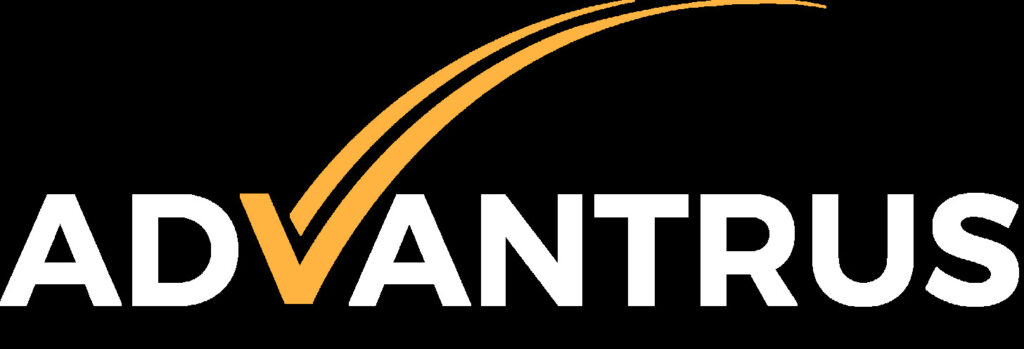What is Health Insurance? A Guide to Coverage & Benefits
Health insurance is our safety net as we journey through life. It safeguards us from the financial hits of sudden illnesses or injuries. This shield ensures we can access top-notch healthcare. It also brings the peace of mind of being ready for any health surprise.1
This guide dives into the world of health insurance. It covers everything from what options are out there to understanding costs like premiums and deductibles. No matter if you’re just starting in your work life or fine-tuning your coverage, you’ll learn how to make smart choices.
Key Takeaways
- It helps with bills from medical care, including seeing the doctor and hospital stays.1
- Not having it puts both your health and money at risk.1
- It’s important to know what terms like deductibles and premiums mean when picking a plan.1
- Options like the Affordable Care Act, Medicare, and Medicaid exist. They provide various coverages.1
- Looking at the overall costs, such as monthly payments and how much you’d pay yourself, is key.1
What is Health Insurance in FLorida?
What is health insurance Health insurance is like a promise to help with healthcare costs. You make an agreement with a company. They help you pay for things like seeing a doctor or staying in a hospital.2 This promise is crucial if you get sick, have an accident, or need urgent medical care. You’ll pay a little every month to keep this promise going.1 This system also makes sure you can get check-ups and tests to stay healthy, like shots or cancer checks. How can someone like Advantrus help? Ares of importants: health insurance cost, financial protection, preventive care, access to quality healthcare, medical insurance, healthcare plans, Health Insurance in Florida , healthcare benefits, medical insurance plans

In 2010, the Affordable Care Act made it so people could easily find health insurance online. Through the website HealthCare.gov, you can look up different plans in your area.2 These plans could be under the Affordable Care Act (ACA), or they could be Medicare or Medicaid options.2> Having health insurance means you’re financially protected and can get good care when you need it. It’s key for our health and well-being.
Understanding Health Insurance Plans
A health insurance plan, also called a health plan or policy, includes a package of covered health care items and services.1 It says how much the plan pays for these.
1 Health care coverage can be private (like through your job or on your own) or public (for instance, Medicare, Medicaid, or the Veteran’s Health Administration).1 Plans differ in their benefits and how long they last.
Health insurance plans have many options.3 Cheaper plans might not cover as much or have more limits, so you may have to pay more for care.3 They might have deductibles, copays, and coinsurance, changing what you pay.3
If your doctor is not in your plan’s network, you might pay a lot more or not be covered at all.3 It can be much cheaper to use in-network healthcare providers.3 The plan’s rules decide what services are covered and how costs are shared between you and the insurance company.3

About half of Americans get health insurance coverage through work, with their employer helping with the cost.2 The Affordable Care Act made HealthCare.gov to help people find insurance plans.2 It also helps pay for insurance for those earning between 100% and 400% of the federal poverty line.2
Cost Sharing in Health Insurance
Healthcare can be complex, but knowing about cost sharing is essential. It’s the part of the bill you pay yourself. This includes deductibles, copays, and coinsurance.45
A deductible is what you pay first, before your insurance helps. After meeting this cost, you might pay a copayment or coinsurance. A copayment is a set amount for each service. Coinsurance is a percent of the service’s cost.6
Cost sharing changes if you go to an in-network or out-of-network doctor. It’s important to know this difference for using your insurance wisely.5
Some people may get help with these costs from the Health Insurance Marketplace. They can get lower deductibles and payments. The American Rescue Plan (ARP) also makes some plans free or cheap, reducing what you pay.45
Understanding cost sharing helps us pick the right healthcare plan. This way, we get the best value from our insurance.56

Importance of Health Insurance
Health insurance is vital for many reasons. It protects us financially by paying for our medical expenses. This keeps us from facing huge costs linked to injuries, sicknesses, or medical crises.7 Back in 2001, around 40 million Americans didn’t have health insurance. This was shown in a report by the Institute of Medicine. In 1999, one out of every six Americans was without insurance, including 10 million children.7
Having health insurance means we can get quality healthcare, such as preventative services. These services often help keep us healthy.7 A survey found that people without insurance were much less likely to get help for serious health issues.
Imagine facing a huge medical bill without insurance. This could wipe out our savings and cause a lot of stress.7 Studies have shown that just 10% of people use up 70% of healthcare funds. Luckily, many plans now cover check-ups and preventative care. This can prevent major health issues later on.7
Without insurance, people often believe that those who need to see a doctor will somehow find a way. But in reality, many uninsured people don’t get the care they need.7
Today, almost 90% of people in the U.S. have health insurance. This shows big progress in the last five years. However, over 28 million individuals are still without coverage. This puts their health and finances at risk.8 Because of the Affordable Care Act, almost 20 million more people now have insurance. They got it through Medicaid, work benefits, or by buying their own plan.
8 Those on Medicaid are more likely to regularly see a doctor and get preventative care. Adults with Medicaid also have better access to important medicines like those for diabetes, asthma, and heart diseases.8
States that expanded Medicaid have more diagnoses of diabetes and better cancer care. And people with coverage can more easily access mental health services. This leads to more visits for ongoing mental health support.8
8 When more people are covered, the number of deaths drops. There are lower risks of dying from heart problems in states that expanded Medicaid. Medicaid expansion also helps reduce crime and boost the economy by creating jobs.8
Uninsured people put a big financial strain on the healthcare system. In 2017, hospitals gave $38.4 billion in care for people without insurance. Also, insurance coverage differs by race, with Hispanics having more people without insurance than whites.8
Choosing the Right Health Insurance Plan
Navigating health insurance can be tough, but it’s important to look at many things. We do this to pick a plan that fits our coverage needs and budget.9
First, look at how you’ve used healthcare before and what you might need. Think about times you’ve gone to the Urgent Care or Emergency Department. This helps predict what you might need and find a plan that covers you well.10
When looking at different health insurance plans, check out what they include, their deductibles and copays, and the doctors you can see. Knowing these details lets you pick a plan that gives good coverage at a fair price.9
It’s also key to compare how much different plans cost.9 Besides that, think about customer service and how well they handle claims. This ensures you’re happy using your plan.10
Think hard about these points and compare your options. This way, you’ll find a health insurance plan perfect for you. A good choice will keep you covered and give you access to great healthcare.91011
Types of Health Insurance Policies
Health insurance comes in two main types: individual and family. Individual plans cover one person. Family plans include the policyholder’s dependents too.12
Plans are also grouped by their network, like Health Maintenance Organizations (HMOs) and Preferred Provider Organizations (PPOs).13 The network type affects costs and whether you need referrals for specific care.
HMO plans are good for reducing costs if you go to in-network doctors and hospitals.13 EPO plans barely cover out-of-network services, except in emergencies.13 POS plans mix HMO and PPO features, needing a chosen Primary Care Provider (PCP).13 PPO plans let you see a broad range of providers and specialists easily.13
Picking the right health insurance means looking at the network’s size, the coverage, and your medical needs. Plans with high deductibles might be cheaper but good for those in top health.13 If you expect to need more than check-ups, plans with lower deductibles and co-pays are a better idea.13 People with regular healthcare needs should focus on plans that help cover common expenses like doctor visits and prescriptions.13
Factors Affecting Health Insurance Costs
The cost of health insurance depends on many things. One big factor is the policyholder’s age. Older folks might pay three times more than young adults. This is because health risks increase as we age.
If someone uses tobacco, they could pay up to half more. Tobacco raises health risks, so insurance costs more for smokers.
The place you live also matters. Health insurance costs in Orlando Florida can go up or down based on local health care prices in your area.14 Choosing between an HMO or PPO plan affects costs too. While some plans have lower monthly payments, you might have to pay more when you get care.
When deciding premiums, insurers look at a lot of things. Age, health, deductibles, and the type of coverage all play a part. Someone’s health history and current condition can also change how much they pay for insurance.
Shopping wisely can save you money. Look into high-deductible plans and Health Savings Accounts (HSAs). These and getting regular check-ups can lower your insurance costs.
Claim Process and Procedures
Understanding our health insurance’s claim process is key. We need to know if the provider is in-network and get preauthorization. It’s also crucial to grasp the plan’s cost-sharing requirements.15
Distinguishing between medical bills and the Explanation of Benefits (EOB) is important. We must also watch out for balance billing from out-of-network providers.15
The claim process might seem complicated. But, talking to both our insurance and healthcare providers can make things smoother.1516
The appeals route usually has three parts: claim filing, denial, and an appeal. Timely updates are crucial: 15 days for prior authorization claims, 30 for others, and 72 hours for urgent care claims.15
For an internal appeal, you have 180 days from denial notice. The insurer must solve appeals for services you haven’t got in 30 days. Appeals for services already received need settling in 60 days. For quick responses, an external review can be requested, with decisions made in 4 business days.15
Claim denials happen for many reasons, like not being covered, having a pre-existing medical condition, going out-of-network, or not being medically necessary. It can also be due to trying experimental treatment, sign-up issues, or lying during enrollment.15
The health insurance world includes challenges like Medicare appeals and treating healthcare providers fairly. Preventing fraud is also a big deal. Knowing more about premium hikes and handling balance billing and cybersecurity problems shows the claim process is always changing.16
Tax Benefits of Health Insurance
Understanding health insurance’s tax perks is key in today’s complex healthcare world. The Affordable Care Act (ACA) offers help through premium tax credits17. These credits can lower the costs of health plans bought on the Health Insurance Marketplace. This means better coverage may be more within reach.
But there’s more. You can get tax deductions on health insurance costs, deductibles, and certain medical bills17. This cuts your taxable income, boosting the worth of your healthcare spending. Plus, using tax-friendly accounts like HSAs or FSAs lets you use pre-tax money for medical needs.17
If you get your plan through work, there’s an extra benefit. The part your employer pays for can be tax-free. This saves you money, post-tax18. However, this benefit might help those with higher incomes more than others.18
Exploring health tax deductions and credits is vital for making the most of your healthcare choices. By using these tax benefits, you safeguard your health and money.1718
Pre-existing Conditions and Coverage
Before the Affordable Care Act (ACA) in 2010, insurance companies did not have to cover or charged more for people with certain health problems.19 But since the ACA started, insurance companies can’t refuse or overcharge for these conditions.19 This helps people with long-term or serious health needs get the care they require without extra costs.19
According to the Centers for Medicare and Medicaid Services, 50 to 129 million Americans under 65 have a health issue before getting insurance.20 Before the ACA, getting insurance was very hard for them.20 Now, because of the ACA, insurance companies must cover them without extra charges.20
Health problems like cancer, diabetes, lupus, and mental health issues are now covered.19 So is being pregnant when you sign up for insurance.19 Also, health insurance must cover things like seeing a doctor, going to the ER, hospital stays, and getting a prescription.20
If you had insurance before the ACA started, your plan might be able to stop covering you or charge more for your health conditions.19 But today, new insurance plans cannot make you wait for coverage because of any existing health issues you might have.19
It’s wise for people with health issues to know what their insurance covers and what rights they have under the law. This way, they can make sure to get fair treatment and avoid extra costs when they need medical care.20
Health Insurance Marketplaces
The Affordable Care Act (ACA) created the Health Insurance Marketplace. It’s a central place for people to find and join private health plans. Here, you can see many different plan choices. Also, you might qualify for help like premium tax credits, Medicaid, and CHIP, depending on your family’s size and income.21
Through the Marketplace, you can compare different health plans. This helps you pick the one that meets your health needs and budget. The best time to sign up is during the Open Enrollment period, usually from November 1st to January 15th. If you join by December 15th, your coverage starts on January 1st. Joining by January 15th means your coverage starts on February 1st.21
There’s also a chance to join outside of Open Enrollment. This is called a Special Enrollment Period. You can do this if you have a big life event, like losing other health coverage or getting married. If you qualify, you might be able to join Medicaid or CHIP at any time and get covered right away.21
The plans on the Marketplace cover 10 essential health benefits. They also cover pre-existing conditions. This is good because it means you’re fully covered. You can apply for Marketplace plans in a few different ways, such as online or by phone. After you sign up, you pay your monthly plan costs to the insurance company to start using your benefits.2122
The Health Insurance Marketplace is a key place for us to check out. It gives us a way to learn about ACA, individual plans, subsidies, Medicaid, and CHIP. With this knowledge, we can pick the right health insurance. Knowing about the Marketplace, and using its tools, helps us make smart choices about our health care.23
Conclusion
We truly believe health insurance is very important for our well-being and safety, both health-wise and financially. It protects us from huge medical bills. Health insurance also lets us see good doctors and helps with staying healthy.
When picking out a plan, look at what they cover, how much they cost, and the doctors you can choose. The Affordable Care Act even stopped companies from saying no because of past health problems. This has made getting health insurance easier and more fair for lots of people.24
It’s smart to learn about health insurance and the different choices out there. By using resources like the Health Insurance Marketplaces, we can find what fits our health needs. This way, everyone in the family can be healthy and not worry about unexpected bills.25
FAQ
What is health insurance?
What are the different types of health insurance plans?
How does cost sharing work in health insurance?
Why is health insurance important?
How do I choose the right health insurance plan?
What factors affect the cost of health insurance?
How do I navigate the health insurance claim process?
What tax benefits are available with health insurance?
How does the Affordable Care Act (ACA) protect individuals with pre-existing conditions?
What is the Health Insurance Marketplace?
Source Links
- https://www.uhc.com/understanding-health-insurance
- https://www.investopedia.com/terms/h/healthinsurance.asp
- https://health.uoregon.edu/understanding-health-insurance
- https://www.healthcare.gov/lower-costs/save-on-out-of-pocket-costs/
- https://www.healthinsurance.org/glossary/cost-sharing/
- https://www.ramseysolutions.com/insurance/what-is-cost-sharing
- https://www.ncbi.nlm.nih.gov/books/NBK223643/
- https://www.aha.org/guidesreports/report-importance-health-coverage
- https://www.nerdwallet.com/article/health/choose-health-insurance
- https://www.mayoclinichealthsystem.org/hometown-health/speaking-of-health/right-health-insurance-plan
- https://www.healthcare.gov/choose-a-plan/plans-categories/
- https://www.uhc.com/understanding-health-insurance/types-of-health-insurance
- https://www.cigna.com/knowledge-center/types-of-health-insurance
- https://www.ehealthinsurance.com/resources/individual-and-family/health-insurance-premiums
- https://www.healthcare.gov/appeal-insurance-company-decision/internal-appeals/
- https://www.insurance.wa.gov/how-your-health-insurance-claims-process-works
- https://www.forbes.com/advisor/health-insurance/is-health-insurance-tax-deductible/
- https://www.taxpolicycenter.org/briefing-book/how-does-tax-exclusion-employer-sponsored-health-insurance-work
- https://www.cigna.com/knowledge-center/what-is-a-pre-existing-condition
- https://www.ehealthinsurance.com/resources/individual-and-family/health-insurance-for-pre-existing-conditions
- https://www.healthcare.gov/quick-guide/one-page-guide-to-the-marketplace/
- https://www.healthcare.gov/coverage/what-marketplace-plans-cover/
- https://www.kff.org/understanding-health-insurance-marketplaces/
- https://www.ncbi.nlm.nih.gov/books/NBK220636/
- https://www.ncbi.nlm.nih.gov/books/NBK208913/

